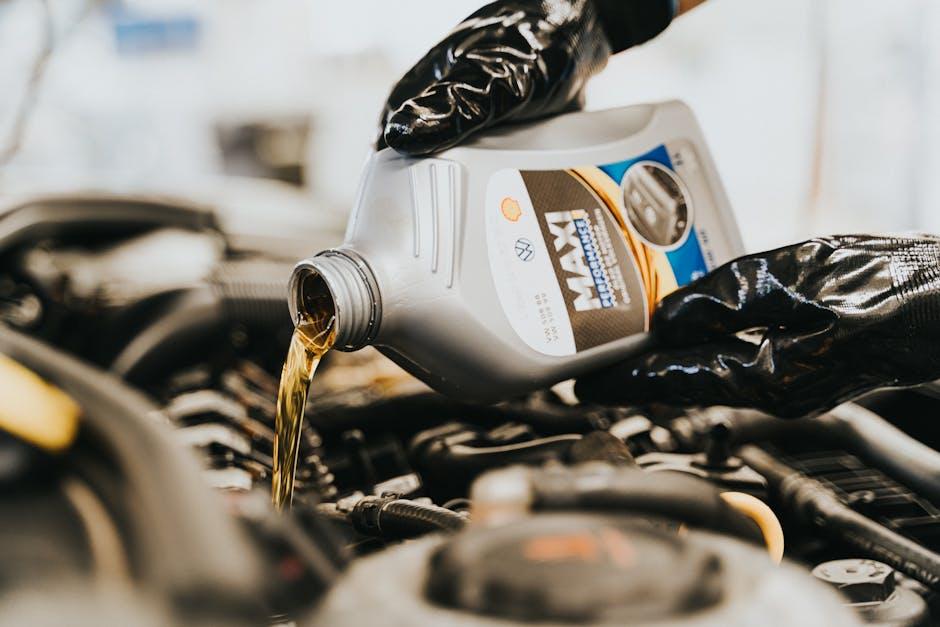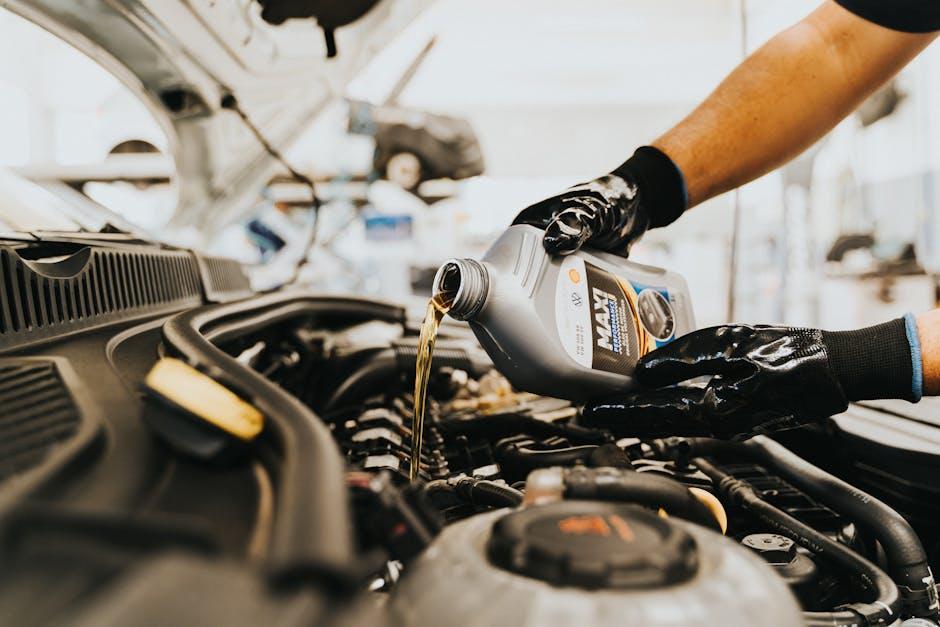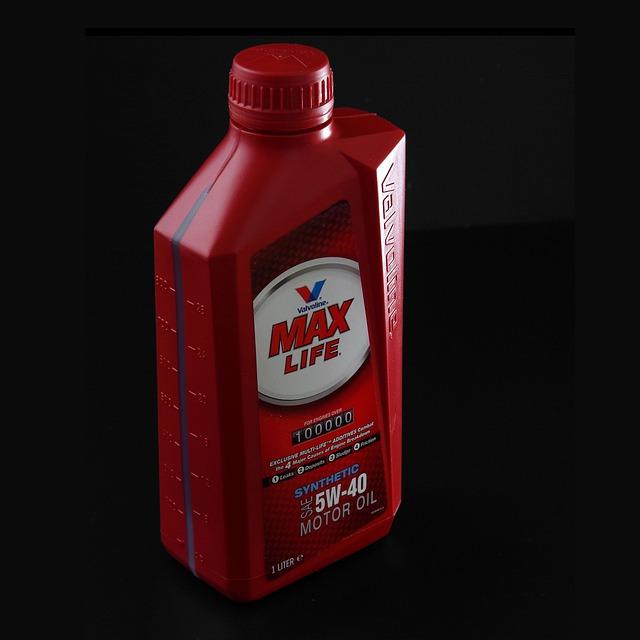Picture your car as a living, breathing machine—constantly in motion, demanding care and attention to keep its heart beating smoothly. At the center of this mechanical rhythm lies a humble yet vital element: engine oil. It quietly lubricates, cools, and protects the engine’s intricate parts, ensuring your vehicle performs at its best. But like all good things, oil doesn’t last forever. So, how often should you change your car’s oil to keep that engine humming without a hitch? Let’s dive into the factors that determine the perfect oil change interval and why timing this maintenance is more crucial than you might think.
Table of Contents
- Understanding the Role of Engine Oil in Vehicle Health
- Factors That Influence Oil Change Frequency
- Decoding Manufacturer Recommendations and Owner’s Manual Guidelines
- Signs Your Car’s Oil Needs Changing Sooner
- Choosing the Right Oil Type for Your Driving Conditions
- Balancing Cost and Performance in Oil Change Intervals
- Q&A
- The Conclusion

Understanding the Role of Engine Oil in Vehicle Health
Engine oil is the unsung hero of your vehicle’s longevity. It performs a myriad of crucial functions, acting as the lubricant that keeps all moving parts operating smoothly. Without proper lubrication, friction between metal components intensifies, leading to premature wear and potential engine failure. Beyond lubrication, engine oil also serves as a coolant by carrying heat away from the engine, preventing overheating. Additionally, it works as a cleanser, trapping dirt, debris, and microscopic particles, which helps prevent sludge buildup and carbon deposits that can impair engine performance.
Understanding the vital role oil plays can highlight why regular changes are indispensable. Over time, oil degrades and loses its effectiveness due to contaminants, oxidation, and thermal breakdown. Changing oil is not just about topping off levels but ensuring that these essential properties are restored to maintain peak engine health. Consider the multiple benefits freshly changed oil provides:
- Improved fuel efficiency, by reducing engine drag.
- Enhanced engine performance, ensuring smoother starts and runs.
- Reduced emissions, helping your car stay environmentally friendly.
- Prolonged engine lifespan by minimizing wear and tear.

Factors That Influence Oil Change Frequency
Several variables come into play when determining how often your car needs an oil change. The type of oil used—conventional, synthetic blend, or full synthetic—plays a key role, as synthetic oils typically last longer and withstand higher temperatures better than conventional oils. Additionally, your driving habits significantly impact oil life. Frequent short trips, stop-and-go traffic, or driving in extreme conditions (hot, cold, dusty) can accelerate oil degradation, requiring more frequent changes. On the other hand, consistent highway driving at moderate speeds can extend oil life.
Another crucial consideration is your vehicle’s age and engine type. Older engines or high-performance models might demand oil changes more regularly to maintain optimal lubrication and avoid premature wear. Lastly, consulting your car’s manufacturer manual is essential, as recommended intervals may vary based on engine design and technology. Below is a quick reference guide that highlights typical oil change intervals based on common influencing factors:
| Factor | Recommended Interval |
|---|---|
| Conventional Oil | 3,000 – 5,000 miles |
| Full Synthetic Oil | 7,500 – 10,000 miles |
| Severe Driving Conditions | 3,000 – 4,000 miles |
| Highway Driving | 8,000 – 10,000 miles |

Decoding Manufacturer Recommendations and Owner’s Manual Guidelines
Every vehicle comes equipped with a manufacturer’s recommended oil change schedule, which is often found explicitly detailed in the owner’s manual. These guidelines are not arbitrary; they’re designed based on extensive testing, engine specifications, and real-world driving conditions. However, these recommendations might vary widely—from every 3,000 miles on older models to as far as 10,000 to 15,000 miles for newer vehicles using synthetic oils. It’s essential to recognize that these intervals serve as a general baseline. Factors such as climate, driving habits, and oil quality can influence how often an oil change is truly necessary.
When reviewing your owner’s manual, pay close attention to sections on “Severe Use” or “Maintenance Under Harsh Conditions.” These often include situations like frequent short trips, extreme temperatures, or towing heavy loads. To help clarify, here’s a quick reference table outlining common manufacturer oil change recommendations based on vehicle type:
| Vehicle Type | Typical Oil Change Interval |
|---|---|
| Compact Cars | 5,000 – 7,500 miles |
| SUVs & Light Trucks | 7,500 – 10,000 miles |
| Luxury or Performance Cars | 7,500 – 15,000 miles |
| Older Models (Pre-2010) | 3,000 – 5,000 miles |
Key Tips for Using Your Owner’s Manual:
- Always reference the recommended oil type and viscosity.
- Check for additional notes on “severe” or “flexible” maintenance schedules.
- Use the manual as a dynamic guide—adjust based on your real-world driving conditions.

Signs Your Car’s Oil Needs Changing Sooner
Sometimes, waiting for the recommended interval to change your car’s oil might not be the best idea. Your vehicle often gives subtle warning signs indicating that the oil is no longer performing at its best. Diminished engine performance such as rough idling or a noticeable decrease in fuel efficiency can signal that your oil has degraded. Additionally, if you spot dark, thick, or gritty oil when you check under the dipstick, it’s a clear hint that contaminants have built up, and fresh oil is needed to keep your engine lubricated properly.
Another critical indicator lies within unusual engine noises or vibrations. When oil loses its lubricating properties, the engine components start to rub against each other more harshly, causing knocking or ticking sounds. Look for these red flags:
- Burning oil smell inside or around the vehicle
- Oil warning light glowing on the dashboard
- Overheating engine symptoms
Addressing these signs promptly can help avoid costly repairs and ensure your car runs smoothly and efficiently.

Choosing the Right Oil Type for Your Driving Conditions
When selecting the ideal oil for your vehicle, the driving environment plays a crucial role in the decision-making process. For instance, frequent city driving with stop-and-go traffic generates more heat and stress on the engine compared to long highway journeys. In such cases, synthetic oils offer superior protection by maintaining stability under high temperatures and resisting breakdown over time. Conversely, if your driving consists mainly of consistent highway speeds in mild climates, conventional oils can perform adequately, providing a cost-effective solution without compromising engine health.
Consider these key factors to determine the best oil type for your driving conditions:
- Temperature Extremes: Synthetic oils excel in both very cold and very hot climates; their superior flow at low temperatures ensures quick lubrication upon startup.
- Driving Style: Aggressive acceleration or frequent short trips demand oils with higher durability, often found in synthetic blends.
- Engine Age & Condition: Older engines may benefit from oils with specialized additives that reduce leaks and wear.
| Driving Condition | Recommended Oil Type | Key Benefit |
|---|---|---|
| City Traffic / Stop & Go | Synthetic | High heat resistance & engine protection |
| Highway / Long Distance | Conventional / Synthetic Blend | Cost-effective with adequate lubrication |
| Cold Climates | Full Synthetic | Fast cold-start fluidity |
| Older Engines | High-Mileage Synthetic | Leak reduction and wear protection |

Balancing Cost and Performance in Oil Change Intervals
Finding the ideal balance between cost and performance when determining oil change intervals isn’t just about saving a few dollars — it’s about preserving your engine’s health over time. Skimping on frequent changes may boost immediate savings, but can accelerate engine wear and increase the chances of costly repairs down the road. Conversely, excessively frequent oil changes can lead to unnecessary expenses without appreciable gains in performance. The key lies in tailoring your routine to your vehicle’s needs, driving habits, and manufacturer recommendations.
Consider these critical factors that play into this balance:
- Driving conditions: Harsh climates, frequent short trips, and stop-and-go traffic can degrade oil faster.
- Oil type: Synthetic oils often last longer and provide better protection, potentially stretching intervals.
- Vehicle age and model: Newer engines might perform optimally on longer intervals; older engines sometimes benefit from more frequent changes.
| Oil Change Frequency | Typical Cost | Recommended For |
|---|---|---|
| Every 3,000 miles | $30 – $50 | Older cars, severe driving |
| Every 5,000 miles | $40 – $70 | Most vehicles, normal use |
| Every 7,500 – 10,000 miles | $50 – $100 | Newer cars, synthetic oil users |
Q&A
Q: How often should I change my car oil?
A: The classic rule of thumb used to be every 3,000 miles, but modern engines and improved oil formulations have stretched that interval. Today, many manufacturers recommend changing oil every 5,000 to 7,500 miles, or even up to 10,000 miles for some synthetic oils. Always check your owner’s manual for the best guidance tailored to your vehicle.
Q: Why does oil need changing anyway?
A: Engine oil is the lifeblood of your car’s engine. It lubricates moving parts, reduces friction, cools components, and helps keep the engine clean by trapping dirt and particles. Over time, oil breaks down, becoming less effective, and can get contaminated. Changing it regularly ensures your engine runs smoothly and avoids costly damage.
Q: Can I wait longer if my car seems fine?
A: While it might be tempting to push oil changes beyond recommended intervals, it’s risky. Oil degrades gradually, and even if your car feels fine, old or dirty oil may increase engine wear or reduce fuel efficiency. Staying on schedule keeps your engine in top shape and helps maintain your warranty.
Q: Does driving style affect oil change frequency?
A: Absolutely! Short trips, stop-and-go traffic, extreme temperatures, towing heavy loads, and sporty driving can accelerate oil degradation. If your driving conditions are “severe” or “harsh,” consider changing oil more frequently, even if your car’s manual suggests a longer interval.
Q: Are synthetic oils better?
A: Synthetic oils typically last longer, resist breakdown better, and perform well under extreme temperatures compared to conventional oils. This means you might go longer between changes if you use synthetic oil, but again, follow manufacturer advice and factor in your driving habits.
Q: What are the signs that I need an oil change?
A: Common signals include the oil change light on your dashboard, dark or gritty oil on the dipstick, engine noise or knocking, reduced fuel efficiency, or a burning smell. If you notice any of these, check your oil and consider heading to a mechanic.
Q: Is it okay to change only the oil and not the filter?
A: It’s best practice to replace the oil filter every time you change the oil. The filter traps contaminants, and a clogged filter won’t do its job properly, which can negate the benefits of fresh oil.
Q: How do I keep track of oil changes?
A: Keep a log in your glove box, use your phone’s calendar, or rely on your car’s maintenance reminder system. Staying organized helps avoid missed changes and keeps your car running like new.
Q: Can skipping oil changes void my warranty?
A: Yes, neglecting regular oil changes can void your manufacturer’s warranty. Always follow the recommended maintenance schedule to keep your warranty intact and your engine healthy.
Q: What’s the takeaway?
A: Oil changes are a small but crucial part of car care. Follow your owner’s manual, consider your driving conditions, and don’t ignore warning signs. A well-lubricated engine means a happy car and a smoother ride for you.
The Conclusion
In the end, the question of how often you should change your car’s oil doesn’t have a one-size-fits-all answer. It’s a dance between manufacturer guidelines, your driving habits, and the type of oil you choose. Keep an attentive eye on your vehicle’s needs, listen to its subtle cues, and give it the timely care it deserves. After all, a well-oiled engine is the heartbeat of a smooth, reliable ride—ensuring every journey runs just a little bit better.

